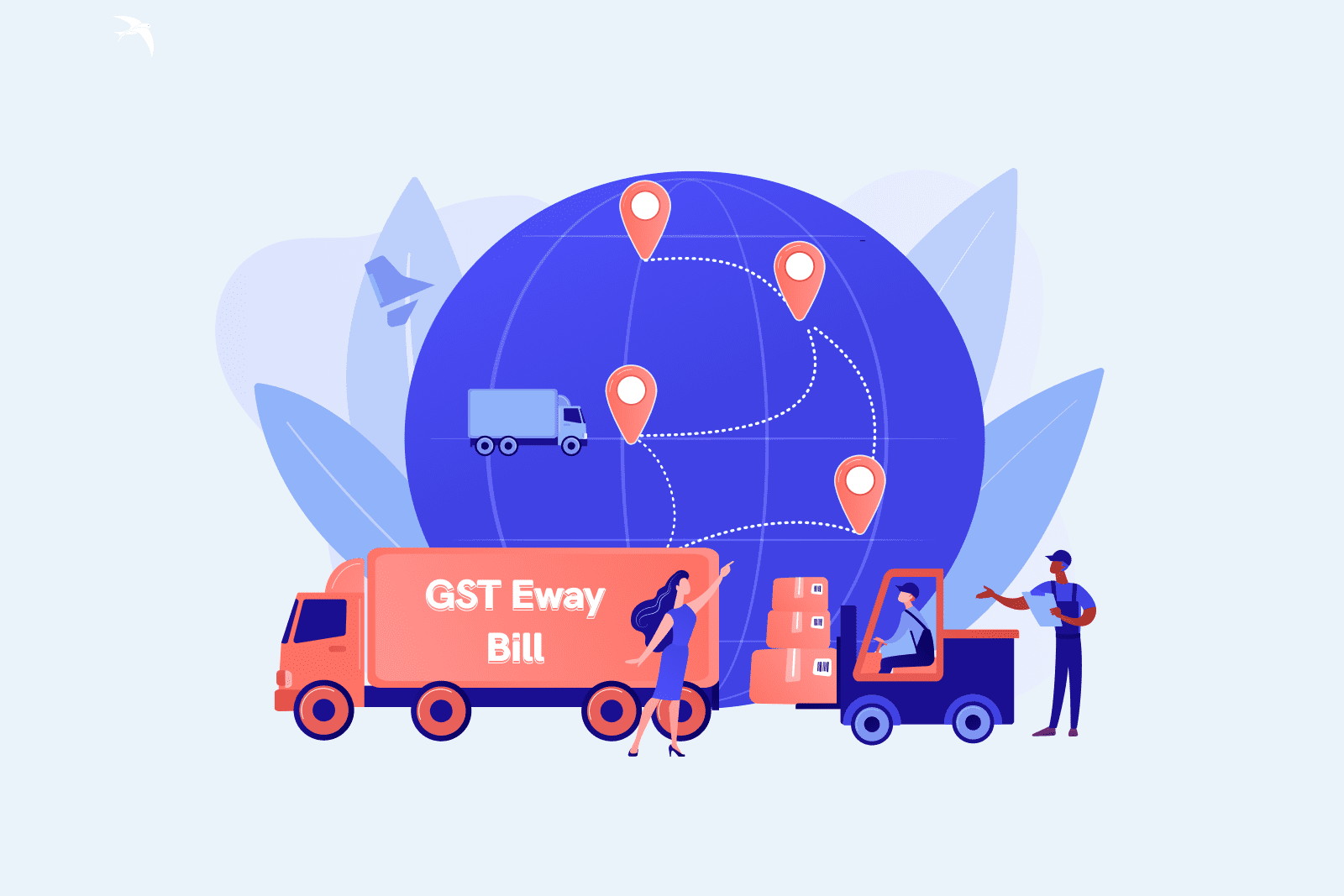
GST Eway Bill for the eCommerce industry has become a game changer and holds the greatest power in the transportation of goods and services. As logistics is the heart of the eCommerce business to validate its performance and offer exceptional customer service, also logistics of goods is an important KPI to differentiate any eCommerce business from its competitors to stand out to its customers, GST Eway Bill has more prominence and impact than any other Govt. taxes or compliances.
What is the GST EWay Bill?
Eway bill for eCommerce consignments has been introduced by the government of India as a part of the Goods and Services Tax (GST) in order to replace a plethora of indirect taxes with a single unified tax. This novel initiative was taken to ensure that businesses operate on a level playing field and to reduce the cost of compliance. The introduction of GST was a game-changer for the entire country as it resulted in the complete transformation of the indirect tax structure. The GST Eway Bill is one of the most significant GST reforms and it is aimed at making the transport of goods hassle-free and seamless. The Eway bill for the interstate movement of goods will be generated from the GST Common Portal and will be made available to the consignor, consignee, and transporter.The Impact of GST Eway Bill on eCommerce
GST has drastically impacted the Indian eCommerce and Logistics Industry, and it’s all for the better. Prior to GST Eway Bill, the burden of complying with the tax regulations was a major roadblock in the logistics operations. From physical documents to lengthy lines at interstate checkpoints, the logistics industry was plagued with inefficiency. On average, 30-60% of the resources were spent on tax compliance, and 16% of the time was just spent queuing up! This clearly indicates that reforms are needed for the logistics industry. The introduction of the Eway bill has changed the game. It’s made the inter-state movement of goods seamless, eliminating the need for long queues at check posts and reducing the number of warehouses the e-commerce companies need.How the GST Eway Bill Transforms eCommerce Logistics?
Eway Bill promises multiple benefits for the eCommerce industry to transform its logistics at the core and fasten the time of transportation of goods. And these benefits with the utilization of information technology have unlocked new opportunities and brought unexplored advantages to the Eway Billing system.-
Documentation
Say goodbye to tedious paperwork! Transporters can now benefit from the use of RFID devices attached to the vehicles used for regular consignments. No need to carry physical copies, simply use the RFID device for e-way bill mapping and verification. -
Quicker Movement of Consignment
E-Way Billing will bring tremendous benefits – no more check-posts on state borders and highways, allowing goods to travel more freely! This reduces the time for the shipment delivery by 50% and saves potential costs and time -
Logistics Costs
E-Way Bill is set to increase invoicing accuracy and reduce tax avoidance. In the long run, this bill is expected to cut our Logistic cost to GDP ratio, which is considerably high compared to other countries.
How can an eCommerce Business stay Compliant while Employing Eway Bill?
Eway Bill comes with various advantages, yet businesses practicing this tax need to follow a few guidelines to stay compliant and avoid potential losses due to misinformation or misjudgments.- When the mode of transport for a consignment is changed, the transporter or generator of the E-way bill must update the vehicle number.
- If the transporter is carrying multiple consignments, they just need to carry one consolidated e-way bill instead of multiple ones.
- E-way bills must be canceled within 24 hours if goods aren’t transported.
- The recipient must accept or reject the bill within 72 hours, and the system will presume acceptance if no other correspondence is given.
- The person in charge of the conveyance must provide certain documents such as the invoice or bill of supply for verification.
- Transporters can also use RFID (Radio Frequency Identification Device) to convey the details of the e-way bill.
- Goods can be physically verified if there is any suspicion of tax avoidance or other malpractice. Otherwise, goods verified can continue freely.
- Verifying officers must present a report of inspection within 3 days of verifying a consignment.
- Transporters can submit queries on the GSTN portal if their vehicle is detained for more than 30 minutes without a valid reason.
- E-way bills are valid only for a certain period of time.